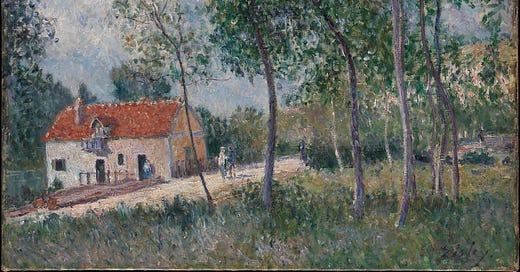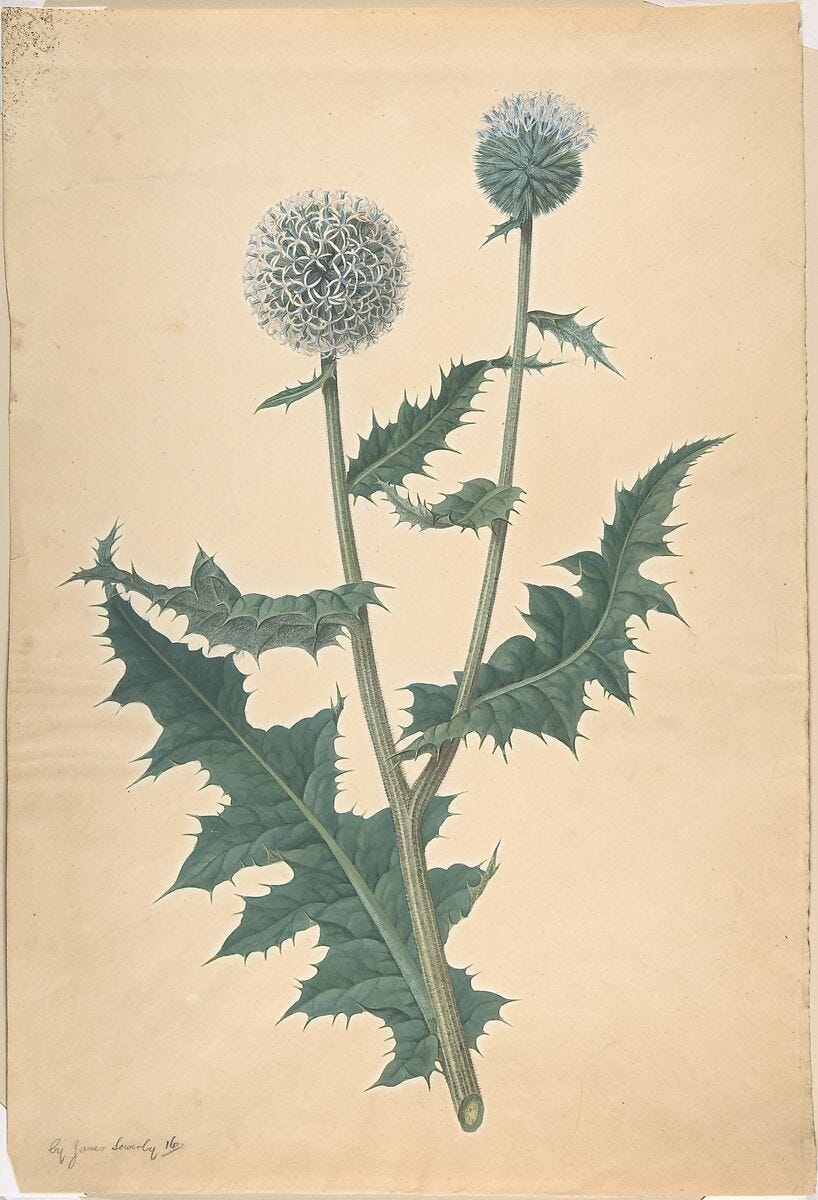Hey there, I’m Gaia, and I write about nature, home, and identity. I also create resources for new nature writers! Subscribe for free to receive my open resources, or join The Way Home community to gain access to all my writings. Enjoy a mindful, ecocentric, and authentic virtual space, designed to bring balance to our chaotic and precarious times.
On Sensory Details and Imagery
Nature writing explores the relationship between humans and the natural world. This definition labels humans as observers, not protagonists. As we are human, we cannot really escape the human gaze by default, that’s clear.
But what we can do is attune ourselves to the hidden stories that nature is telling, regardless of our role in them. The assumption that I should remove myself from the picture completely used to make me think that my humanity worked against me. How can I write about nature if I can’t use my perspective as a human?
Everything changed when I understood the most important prerequisite for this literary genre was something that came quite naturally to me: observing.
For my first free resource, I propose a pillar of nature writing: the importance of sensory details and imagery, explained through an excerpt from Macfarlane’s The Wild Places.
At the bottom of this post, you will find a little writing prompt too :)
Example of multisensorial description from The Wild Places by Robert MacFarlane
“There is no mystery in this association of woods and otherworlds, for as anyone who has walked the woods knows, they are places of correspondence, of call and answer. Visual affinities of color, relief and texture abound. A fallen branch echoes the deltoid form of a streambed into which it has come to rest. Chrome yellow autumn elm leaves find their color rhyme in the eye-ring of the blackbird. Different aspects of the forest link unexpectedly with each other, and so it is that within the stories, different times and worlds can be joined.”
The visual and sensory correspondences found in nature create a cohesive atmosphere. The author is indeed present in the scene, but his perspective honours nature as a complex system, where things move, progress, and resonate without him needing to do anything more than look (and perhaps scribble on his notebook, or so I like to think).
I’ve read many times that nature writing shouldn’t be about humans. To some extent, I agree. At the same time, I believe that a slight clarification could benefit those who are interested in this genre: If a human is writing, their gaze will always be present.
Nature writing is meant to be extremely evocative. Because of this, writers must engage with all their senses. Consider smell, hearing, and even taste, if not deadly venomous.
Keep in mind that unlike other literary genres, descriptions of places are not only used as a vehicle for context and plot details. They constitute a crucial part of the piece.
Some would even argue that, when it comes to nature writing, description is where the story takes place.
Writing Prompt
Regardless of your surroundings, you can most likely find something belonging to the natural world around you. If you don’t believe me, just look in the mirror.
Choose something to observe. It can be anything, from the vast meadows next to your backyard (lucky you) to the dead rat you found on the street (lucky me).
Engage with your senses, channel your inner Robert MacFarlane, and start scribbling. The length of this is at your own discretion (almost everything in life is, remember that).
I know I don’t know you and you don’t know me, but I’d love to read what you wrote!
If you feel comfortable doing so, do share your descriptions as a comment.
You can always share it with me through a DM if that’s more your style.
Either way, I love reading other people’s work. Which reminds me of the awesome news I have 👇
Oh, By The Way!!
The Way Home has also become a Medium publication! There, I will edit and curate works from other nature writers. Would you like to participate?
Read the guidelines here, or on the “Write for Us” tab on Medium. Becoming part of this project is super easy and beginner-friendly. Since we are just getting started, I’ll provide feedback for each submission to help you get accepted.
Thank you so much for reading,
All the best,
Gaia Kriscak








Congrats on your Medium publication. Sounds like a nice place in the woods to hang!
Thank you, Kristina 😊